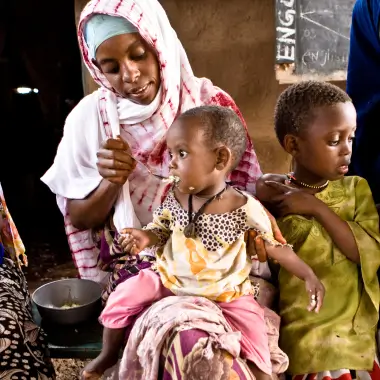UN’s Trans-Fatty Acid Policy: A Threat To Global Food Security

•By Admin

IBADAN – Over 115 leading agribusiness experts, government advisors, and business leaders have signed an open letter warning that a proposed United Nations declaration to eliminate trans-fatty acids from global diets could unintentionally harm the world’s poorest communities by discouraging the consumption of milk, meat, and other animal-source foods that are crucial to their nutrition and development.

In an open letter dated July 10, 2025, and signed by Folusho Omotayo Onifade, Media and Communications Officer | Training and Protocol Lead, International Livestock Research Institute (ILRI), c/o International Institute of Tropical Agriculture (IITA), Ibadan, Nigeria, the signatories urged UN negotiators to revise the draft declaration and exclude naturally occurring trans-fats in animal-source foods from the policy. The letter, coordinated by the Nairobi-based ILRI, has sparked global discussion on the implications of a “blanket ban” that lumps industrial and natural trans-fats together.
The current draft, part of a broader initiative to combat non-communicable diseases (NCDs) such as heart disease and diabetes, proposes the elimination of all forms of trans-fatty acids from the global food supply. However, the experts warn that such a generalised approach could undermine nutrition for low- and middle-income countries (LMICs), where access to affordable, nutrient-dense foods is already limited.
“The risk of a blanket commitment to eliminate all trans-fatty acids is that it unnecessarily discourages the consumption of highly nutritious dairy, meat and other animal-source foods,” the letter reads.

“And once again, the burden will fall heaviest on low- and middle-income countries, where nutrient-rich meat, milk and dairy are already under-consumed.”
The letter was endorsed by the African Union Inter-African Bureau for Animal Resources (AU-IBAR) and supported by experts from the UN Committee on World Food Security, the Global Alliance for Improved Nutrition (GAIN), and the World Alliance of Mobile Indigenous Peoples (WAMIP).
While trans-fats produced industrially, commonly found in margarine, fried snacks, and baked goods, are widely recognized as harmful and a major contributor to cardiovascular disease, naturally occurring trans-fats in animal-source foods are present in much lower levels and may even offer health benefits. Several studies have found links between these natural fats and reduced risk of conditions such as type 2 diabetes.
“Industrially-produced trans-fatty acids come from food processing, a sector that is still in its infancy in many African countries. These countries have the opportunity to create a new food future as their food systems transform,” said Namukolo Covic, ILRI’s Director General’s Representative to Ethiopia.
“These food systems must transform towards eliminating industrially derived trans-fat.”
Non-communicable diseases disproportionately affect poorer nations, where undernutrition during the first 1,000 days of a child’s life often increases vulnerability to chronic illness in adulthood. In 2023, one in every five Africans experienced hunger, while nearly one-third of children under five suffered from stunted growth.
Milk and meat are vital sources of protein, energy, and essential micronutrients such as Vitamins A and B12, riboflavin, calcium, zinc, and iodine. Yet in some of the world’s poorest countries, annual milk consumption is less than 1kg per person—far below recommended levels for child development.
“A single glass of milk is among the most affordable, nutrient-rich foods available, milk has been shown to reduce stunting in children and lessen the burden of hunger,” Covic added.
“A child who drinks milk daily can grow up to three per cent more in height each month than one who does not,” the letter states, highlighting how much is at stake for vulnerable populations.
“The contribution of animal-source foods to trans-fatty acids is very low compared to industrially derived trans-fats and should be weighed against their contributions to nutrient density, given their nutritional benefits even in small quantities,” said Professor Ruth Oniang’o, Food Science and Nutrition expert and Editor-in-Chief of the African Journal of Food, Agriculture, Nutrition and Development.
“For people in low-income settings, animal-source foods are often the only reliable and available source of essential nutrients. We need a nuanced approach supported by sustainability solutions.”
“UN negotiators must ensure this resolution recognizes the distinction between the large amounts of trans-fats of industrial origin and the low levels naturally occurring in animal-source foods,” she added.
The draft resolution remains under review by UN member states and is expected to be finalised for presentation at the UN General Assembly in September 2025. However, from July 14 to 23, countries will gather at the UN’s High-Level Political Forum in New York, where progress on Sustainable Development Goal 3 (Good Health and Wellbeing) and others will be assessed

